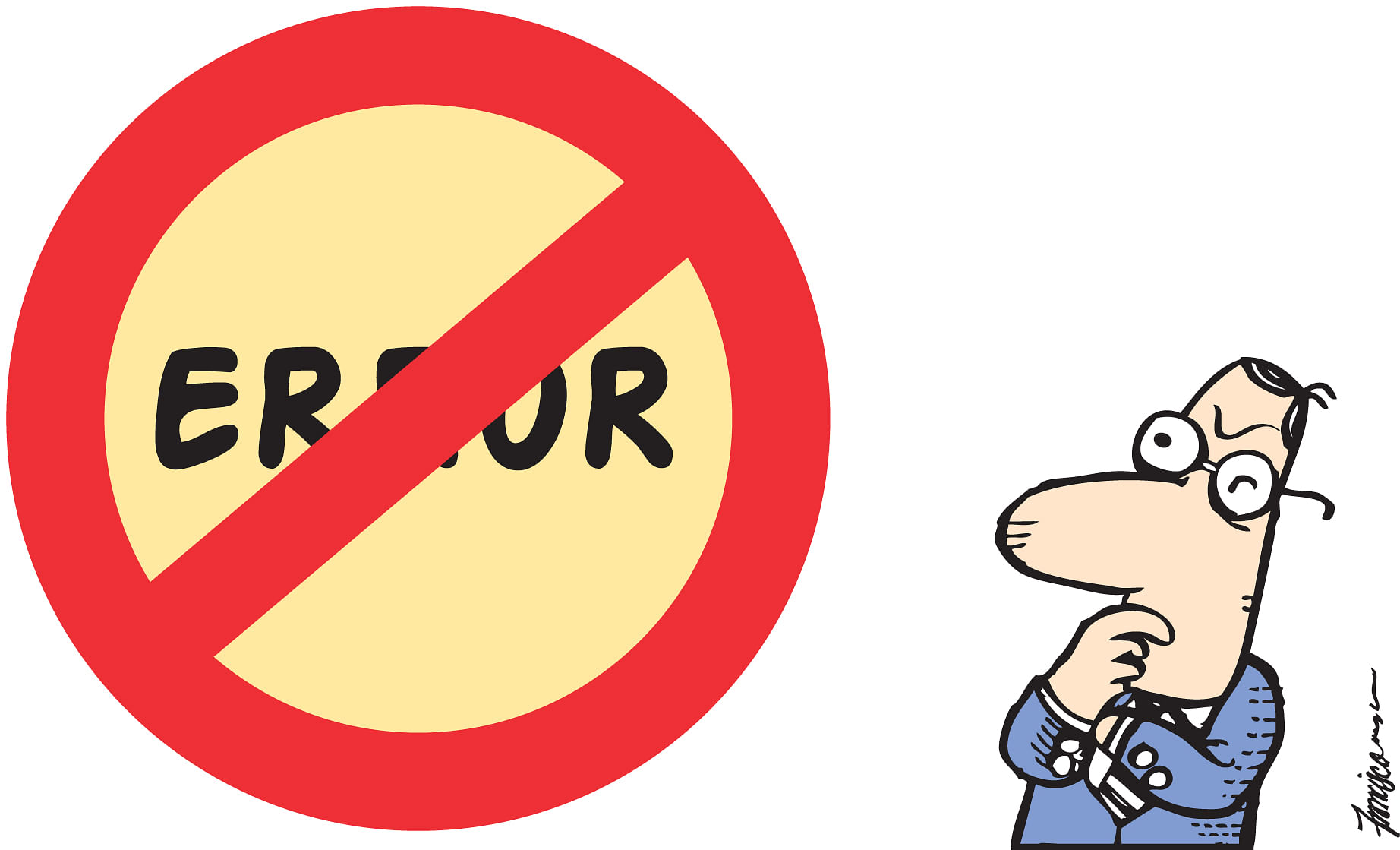What do penicillin, pacemakers and polyethylene plastics have in common? All were accidents in the laboratory, but are now considered among the most important discoveries and inventions of the past 70 years or so.
But what if the brains behind these finds had worked in a place where such accidents were discouraged and errors not tolerated?
"Imagine Alexander Fleming saying, 'Oh no, I just made an error, let me wipe this off quickly.' He would never have detected penicillin," said Professor Michael Frese of the NUS Business School .
Prof Frese, who has been studying this issue for the last 30 years, six of them here, said that Singapore, alongside his home country, Germany, is one of the most error-intolerant nations in the world.

"Singapore is often proud that it is intolerant (of errors)," said the head of the Management and Organisation Department at the school, who has done extensive research on organisational behaviour and work psychology.
"This is a hallmark of Singapore that 'we do not tolerate any deviation from the norm'," he told The Straits Times.
As a small nation lacking natural resources, Singapore's most valuable asset is human capital. The country prides itself on an error-free work culture and has a national ethos that upholds high standards.
"We are taught the importance of being the best, measured by our results," said Mr Tan Toi Chia , a consultant at leadership advisory Heidrick and Struggles. "The idea of errors does not sit comfortably with being successful."
And this emphasis on meritocracy continues into work life. Some argue this approach is a national asset.
Imagine the damage to Singapore's reputation as a logistics hub if items intended for Australia ended up in Austria due to an error, said Ms Stella Tang, managing director of human resources firm Robert Half, who sees error-intolerance as a strength, not a weakness.
"The country's economy relies on industries - like financial services, accounting, technology - that require a high level of precision and where errors can result in loss of time and money," she said.
Ms Linda Teo, country manager of Manpower Group, agreed. National corporate icons such as Singapore Airlines and Changi Airport would not be "where they are if we had accepted a high margin for error".
Prof Frese said his experiments, which included research in 61 countries, typically found that while everyone makes errors, people learn better if they accept that they do so.
"People who are allowed to make errors and learn from them perform better," he said, which could be because they not only discovered new ways to complete the task, but also reflected on what went wrong, which leads to deeper learning. Error tolerance also leads to more creativity and innovation, he said."When you walk around an area, and try to go into an alleyway you have not seen, you might find a footpath that was not in any map."
Ms Teo agreed that while not all errors will lead to innovation, they need to be tolerated at some level to enable people to learn. "In today's work environment, learning on the go - and making mistakes along the way - is the fastest way for employees to learn the ropes," she said.
Mr Tan stressed the need to celebrate the effort to innovate without the fear of failure, which would then lead to "the courage to experiment more and be innovation leaders".
Prof Frese's study also found that companies tend to be more profitable over time if they are error-tolerant. For example, if a travel company employee makes an error with a client's itinerary and the work culture is such that he is encouraged to correct it immediately, the company, as well as the client, will benefit.
In doing so, the firm has also gained the client's trust, he said.
Prof Frese encouraged prompt management of errors to prevent them turning into a catastrophe.
Ms Teo agreed. "Bosses may have to be more tolerant of mistakes, provided they are not serious breaches of ethics or operations. Employers who insist on an autocratic approach will lose out as they will not be able to attract or retain top talent who prefer organisations which foster a culture of innovation."
But Ms Tang believes poorer performance may not benefit Singapore companies. She, however, does not see the need to punish or humiliate such workers. "Singaporeans are very responsible employees and when they realise they have made an error, they tend to fix it and move on."

